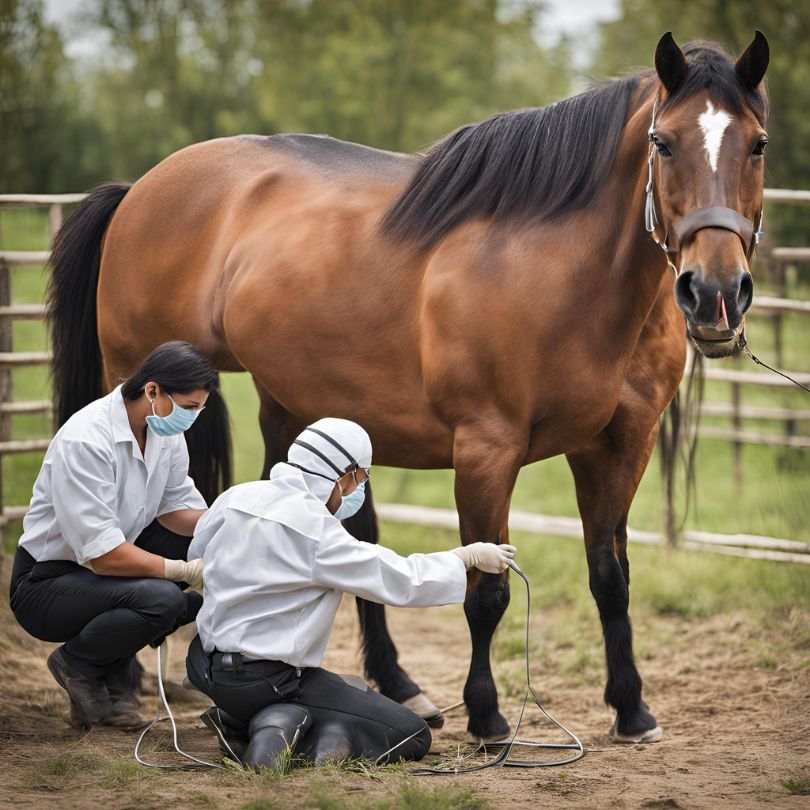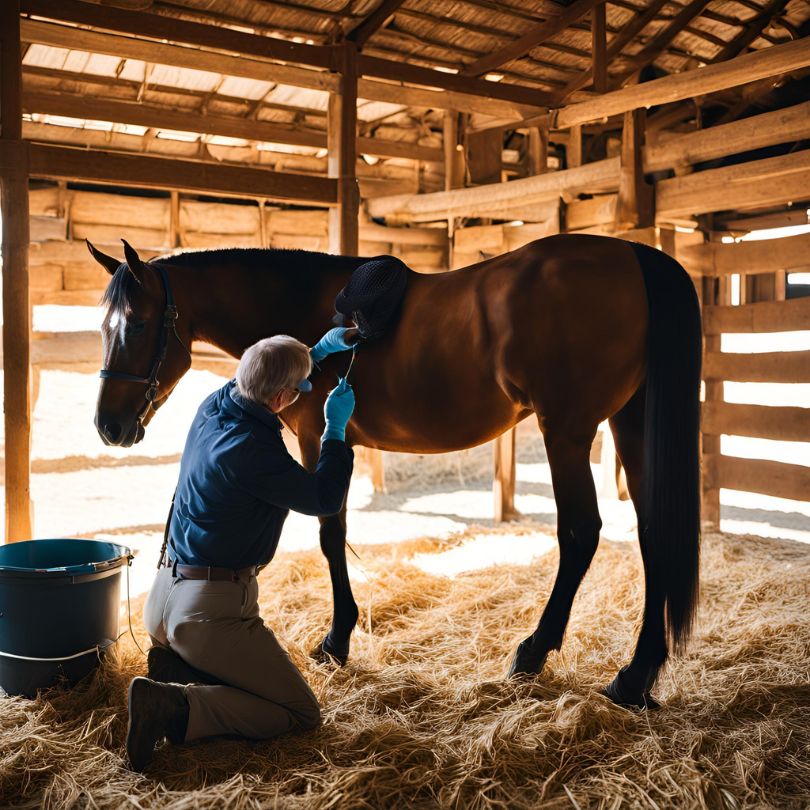Vaccinations are a critical part of maintaining your horse’s health. By following a comprehensive vaccination schedule, you can protect your horse from potentially life-threatening diseases and ensure its well-being. This guide will provide new and seasoned horse owners with an overview of essential vaccines, a typical schedule, and tips for keeping your horse protected year-round.
Why Vaccinations Are Important
Horses are exposed to a variety of pathogens through the environment, other animals, and insects. Vaccinations help the immune system build resistance against specific diseases, reducing the risk of infection and minimizing the severity of illnesses. They are especially important for horses that travel, compete, or are exposed to other animals.
Core Vaccines for Horses
The American Association of Equine Practitioners (AAEP) classifies core vaccines as those essential for all horses, regardless of lifestyle or location:
- Eastern and Western Equine Encephalomyelitis (EEE/WEE): Protects against mosquito-borne viruses that cause severe neurological disease.
- Tetanus: Prevents infection caused by the bacterium Clostridium tetani, which is found in soil and manure.
- West Nile Virus (WNV): Protects against another mosquito-borne virus that affects the nervous system.
- Rabies: Safeguards against a fatal viral disease transmitted through bites from infected animals.
Risk-Based Vaccines
Risk-based vaccines are recommended based on a horse’s age, location, use, and exposure to other animals. Discuss with your veterinarian which of these vaccines are appropriate for your horse:
- Equine Herpesvirus (EHV): Protects against respiratory and reproductive diseases caused by EHV-1 and EHV-4.
- Equine Influenza: Recommended for horses that travel or are frequently exposed to other horses.
- Strangles: Guards against Streptococcus equi, a highly contagious bacterial infection.
- Potomac Horse Fever: Protects against a disease caused by Neorickettsia risticii, common in regions near water sources.
- Botulism: Recommended for horses in areas where the soil is contaminated with Clostridium botulinum.
Vaccination Schedule
A horse’s vaccination schedule can vary based on factors such as age, health, and regional disease risks. Below is a general guideline:
Foals
- 4-6 months: Initial doses of core vaccines (EEE/WEE, Tetanus, WNV, and Rabies).
- 6-8 months: Booster doses.
- 10-12 months: Additional boosters if needed, depending on the disease.
Adult Horses
- Annual Vaccines: Core vaccines should be administered once a year. For some diseases like Rabies, a single annual dose is sufficient.
- Bi-Annual Vaccines: Horses at higher risk (e.g., frequent travelers) may require boosters for risk-based vaccines like Equine Influenza and EHV every six months.
Pregnant Mares
- 5th, 7th, and 9th Months of Pregnancy: EHV vaccine to prevent abortion.
- 4-6 Weeks Before Foaling: Boosters for core vaccines to transfer immunity to the foal through colostrum.
Tips for Effective Vaccination Management
- Work with a Veterinarian: Always consult a licensed veterinarian to develop a vaccination plan tailored to your horse’s specific needs.
- Keep Records: Document vaccination dates, types, and any reactions to maintain a clear history.
- Plan Ahead: Schedule vaccinations well before events or travel to ensure your horse is fully protected.
- Monitor for Side Effects: While rare, some horses may experience mild swelling or soreness at the injection site. Notify your veterinarian if symptoms persist or worsen.
- Combine with Deworming: Coordinate vaccinations with routine deworming to streamline your horse’s health care.
Regional Considerations
Certain diseases are more prevalent in specific areas. For example:
- Horses in mosquito-heavy regions should prioritize EEE/WEE and WNV vaccines.
- Horses near rivers or lakes may need protection against Potomac Horse Fever.
Discuss regional disease risks with your veterinarian to ensure comprehensive coverage.
A well-maintained vaccination schedule is essential for safeguarding your horse’s health and preventing the spread of infectious diseases. By staying proactive and consulting with your veterinarian, you can ensure your horse remains healthy and ready for any adventure. Remember, prevention is always better than cure, and vaccinations are a key part of responsible horse ownership.


